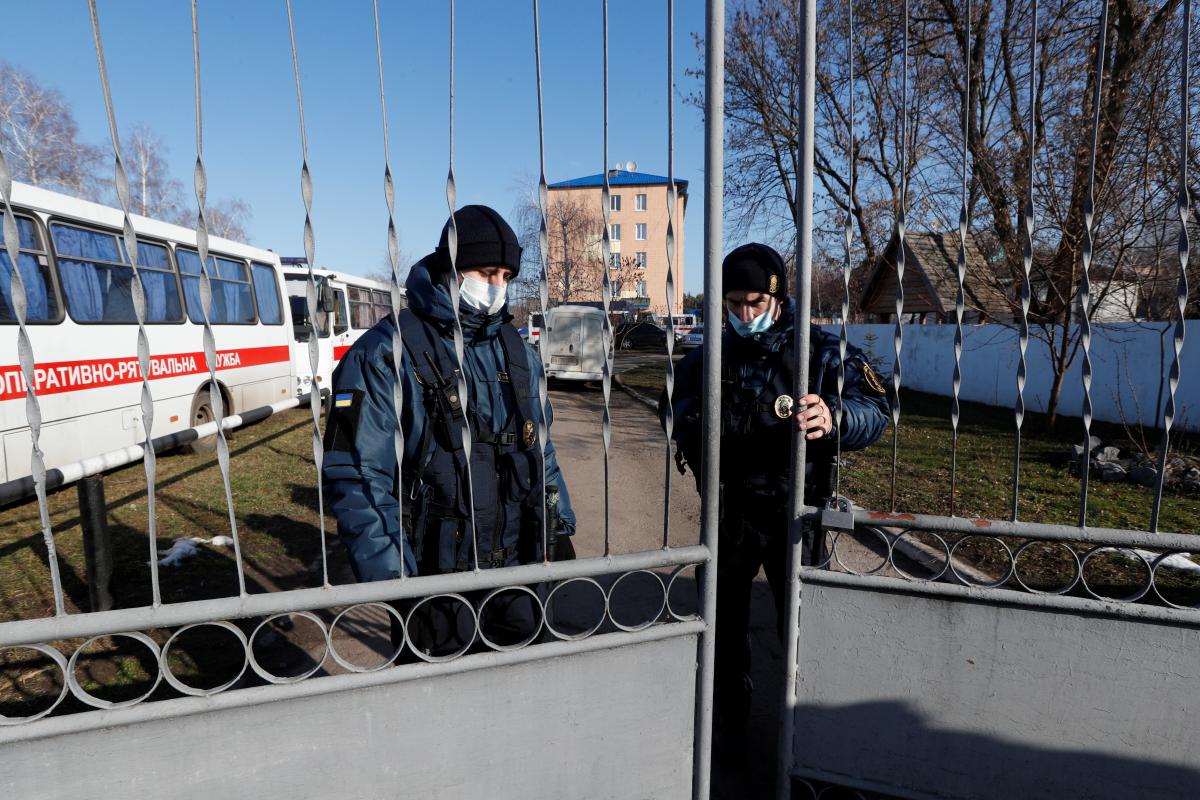
The Ukrainian Interior Ministry has reported the situation in the town of Novi Sanzhary, Poltava region, has returned to normal after recent riots against evacuees from the Chinese city of Wuhan, the epicenter of the novel coronavirus outbreak.
"Now the situation in Novi Sanzhary is calm. Public order is maintained by 320 members of the National Guard, 70 officers of the National Police, and 16 workers of the State Emergency Service. The situation is completely under control ... We will not let anyone threaten security in the Novi Sanzhary health center," Deputy Minister of Internal Affairs Anton Gerashchenko said at a briefing on February 21, according to an UNIAN correspondent.
Read alsoProvocateurs who radicalized rally against Wuhan evacuees "not local", police found
Five criminal cases were opened on the fact of the unrest: mass riots, illegal blocking of roads, hooliganism and incitement to ethnic or racial hatred, as the rioters "used hate speech against foreign citizens" that were evacuated from China together with the Ukrainians, Gerashchenko said.
In turn, Deputy Health Minister Dmytro Koval once again emphasized that the evacuated citizens had undergone health checks at the health center in Novi Sanzhary and tested negative for the coronavirus.
As UNIAN reported earlier, local residents in Novi Sanzhary, Poltava region, on February 20 protested against the arrival of Ukrainian citizens and foreigners evacuated from China and accommodated at a local medical center, which is within the Ukrainian Interior Ministry's jurisdiction. Protesters threw stones at buses with the evacuees.
During the clashes, nine law enforcement officers were injured. The police opened two criminal cases on the fact of mass riots in Novi Sanzhary and violence against law enforcement officers.
On February 21, the police released 23 of the 24 most aggressive individuals detained during the protests; one person remained under arrest.
The evacuees will stay in Novi Sanzhary under 14-day observation with a strict biosecurity regime.

